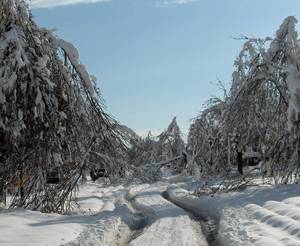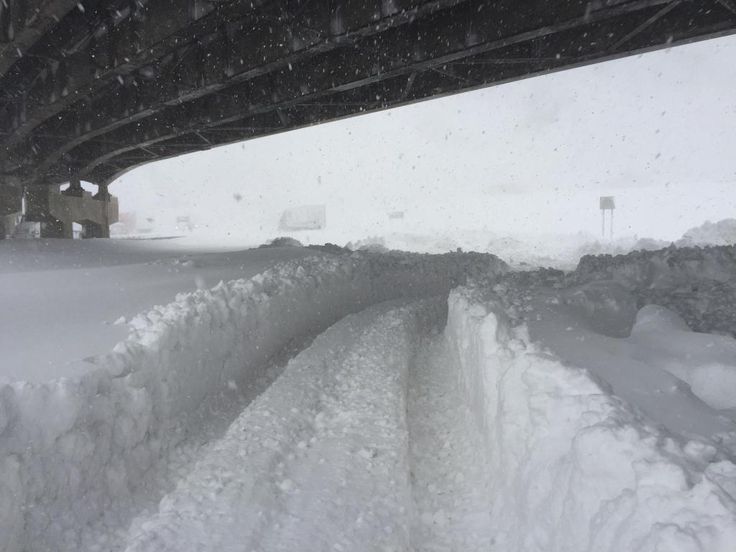 For most people, the term “prepper” conjures up visions of guys in tin foil hats who won’t give a cashier their zip code for fear that men in black are tracking their every move. In some instances, these images could be spot on, with people fearing zombie apocalypse, alien invasion etc. However, when you sprinkle in some realism, every one of us is a week away from a complete meltdown.
For most people, the term “prepper” conjures up visions of guys in tin foil hats who won’t give a cashier their zip code for fear that men in black are tracking their every move. In some instances, these images could be spot on, with people fearing zombie apocalypse, alien invasion etc. However, when you sprinkle in some realism, every one of us is a week away from a complete meltdown.
If you’ve never yourself experienced a brush with a crisis you can’t imagine how quickly people can turn from friendly neighbors to panicked and desperate looters. And, in reality, we are mere weather pattern away from witnessing it all again.
I was once in Buffalo for a couple of weeks of business when I had the opportunity of witnessing one of these episodes myself. Having previously lived in Buffalo for several years, I was familiar with how quickly the weather can change, but being early October, I wasn’t prepared for what I would wake up to. When I opened my eyes that first morning, I noticed I could see my own breath. The power was out and based on the chilly temps, it had been for quite some time. An ice storm had blanketed the area overnight, along with a couple of feet of snow. The snow in itself wouldn’t have been an issue in Buffalo, but the weight of the ice blanketing the trees would turn out to be a major problem. Nearly 400 thousand people would remain without power for what turned out to be about 10 days.
With each slow tick of the clock, patience thinned, along with grocery shelves. Many of the roads were impassable, but those that were, would be clogged with stranded vehicles and desperate people searching for an open grocery store. Fortunately, I was walking distance from one of the first grocery stores to open with the assistance of a couple of generators. What I would witness while inside though would make your jaw drop. Any fresh or refrigerated foods were ruined and had already been thrown out. Bottled water and other beverages were gone completely, and the food shelves were essentially empty. Other items were strewn across the floor throughout the store. People were still walking the aisles looking for anything useable. Gas stations that still had fuel would have massive lines, while home improvement stores all the way to the Pennsylvania state line had completed sold out of every generator.
This all happened nearly 11 ago, but Mother Nature is still showing that she can be a mean, mean lady indeed. Recent hurricanes, fires, and earthquakes have left thousands in similar situations or much worse. These events turn a surplus mindset quickly to one of survival.
This is when preparation and a little knowledge can make all of the difference. Here are some essentials that you’ll hopefully never need to use:
- Water (you can only survive 3 days without water. Plan for 1 gallon per person per day)
- Non-perishable food (remember you may not have power, so think simple items that you can eat without the need to cook)
- Batteries
- First aid kit (remember to grab any medications on your way out)
- Tools (keep it simple with some screwdrivers, hammer, knife, and duct tape)
- Rope
- Hygiene products
- Radio
Along with those, I would highly recommend a generator though I know it may not be practical for everyone or in every situation. If you do decide to opt in for the generator, however, make sure you know how to utilize it properly to power your house. Faulty setup can endanger not just the occupants of your home, but also the workers trying to restore your neighborhood power grid.
Hopefully, you can see that basic preparation doesn’t need to be extravagant or expensive. Customize your own kit based on your individual needs, comfort level, and how far you currently live from population centers (further areas may be without services for longer periods of time). For instance, I would include a handgun along with my kit along with ammo.
The difference between this simple level of preparation and that of a prepper is most commonly duration and severity of the circumstances. Preppers in general plan for months or even years of self-sustainment off of the grid. This often requires huge amounts of capital, time, and skill set to clearly map out any and all requirements for long-term survival. Clearly a different league altogether and a step that most people aren’t willing to take.
If the recent events all over the world can provide any sort of silver lining, hopefully, it is the realization that this can happen to any of us young, old, rich, or poor. Again, you don’t need to build an extravagant safe roof to hide, or a moat to keep out the world. Just use some common sense and realize what you may need to get you past the initial shock of the situation you find yourself in.
Be safe.

